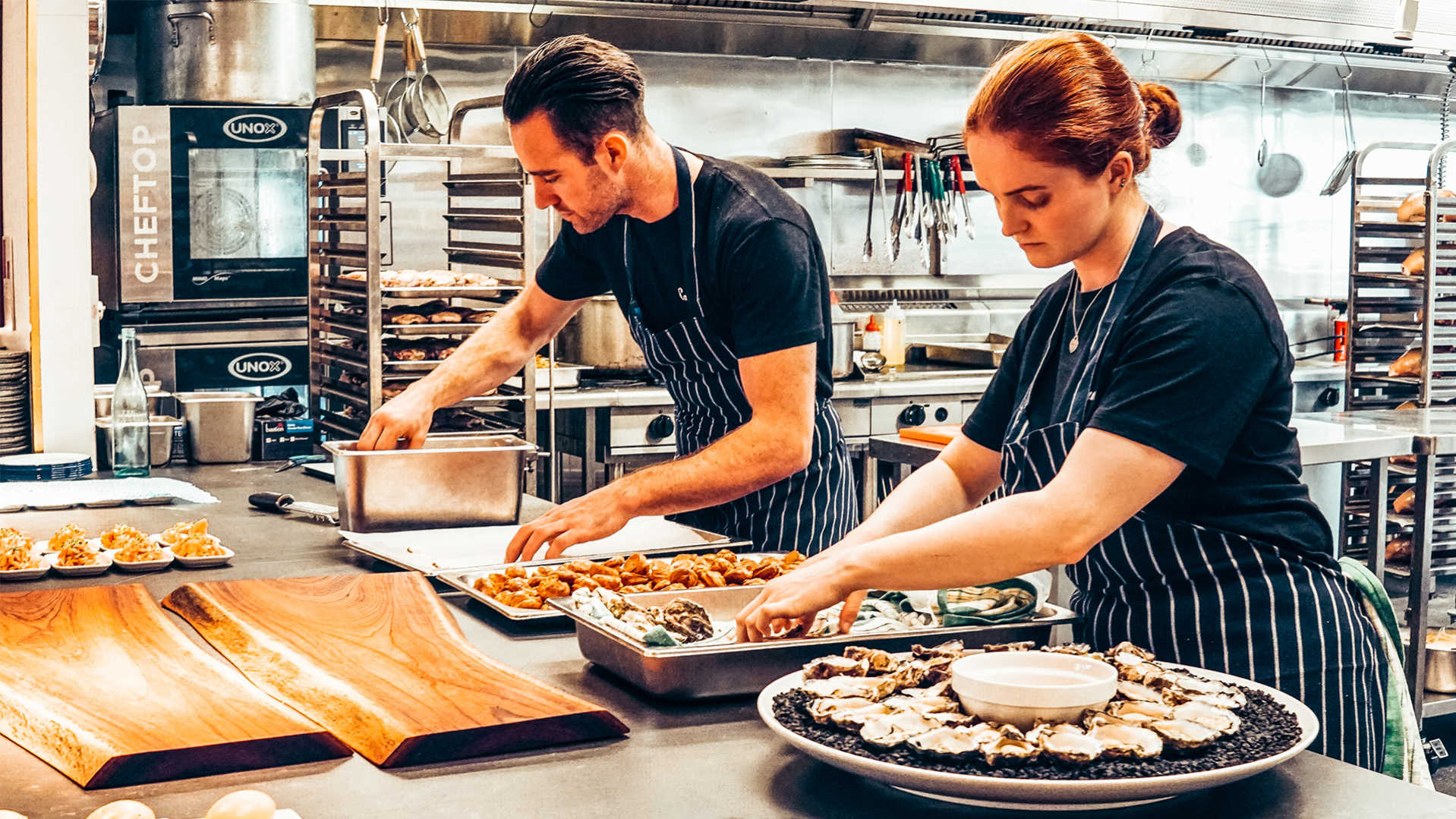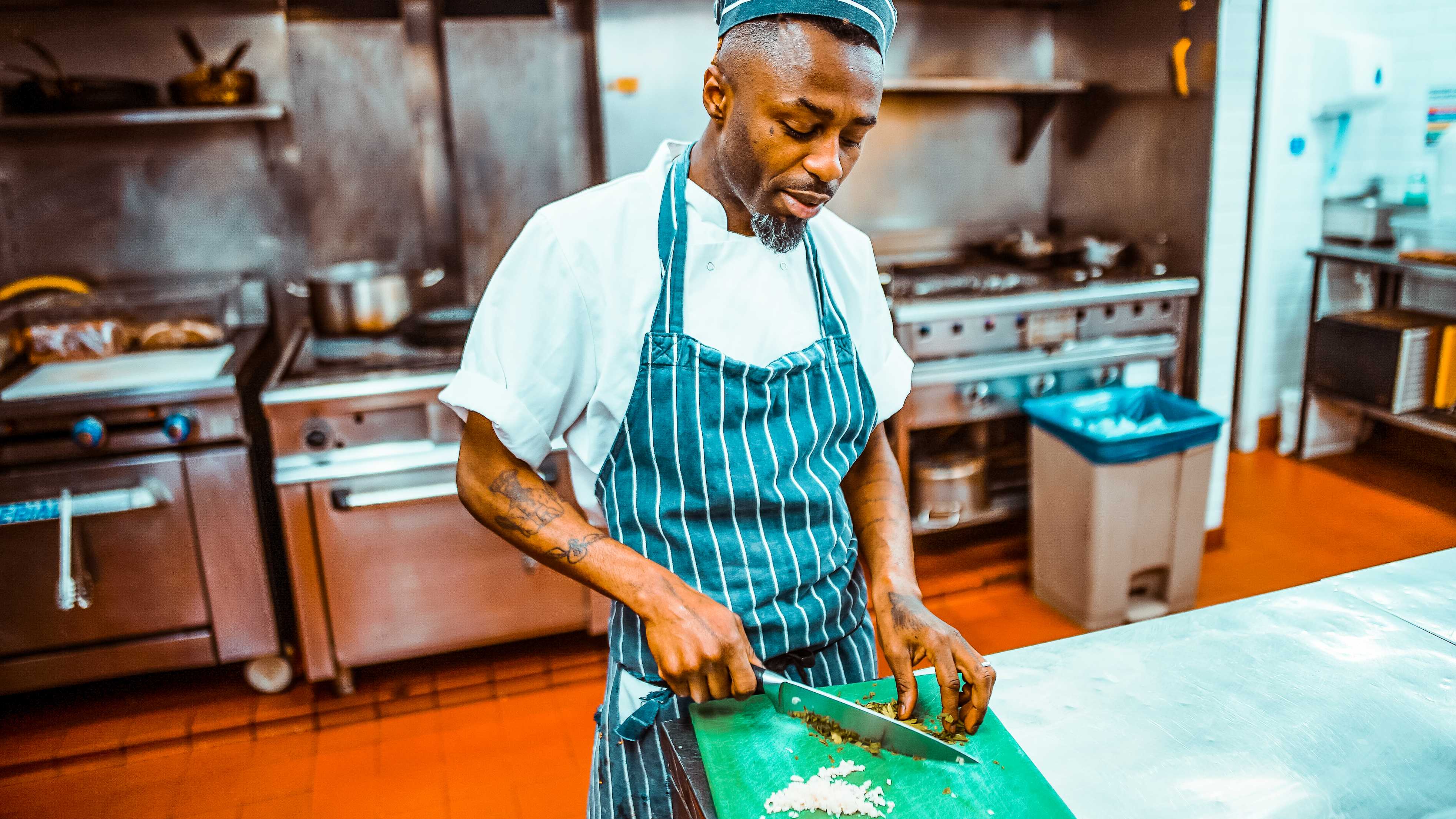The Importance of Food Safety & Handling for Pros

If you are working a Culinary or Service Gig at a Hospitality business, it's essential to remember that food safety should always be a top priority. In this article, we'll delve into the critical aspects of food safety in restaurants, including safe handling and preparation, and the importance of ServSafe Certification to ensure a safe dining experience.
The Importance of Food Safety
Food safety in restaurants is not merely a matter of compliance with health regulations; it's a fundamental responsibility that impacts the health and well-being of customers. Unsafe food handling can lead to foodborne illnesses, which can range from mild discomfort to severe health complications and, in extreme cases, even death. To maintain the trust and loyalty of their patrons, restaurants must prioritize food safety at every step of the preparation and serving process.
Safe Food Handling and Preparation
Storage: Proper storage is the foundation of food safety in restaurants. Perishable ingredients like meat, dairy, and vegetables must be stored at appropriate temperatures to prevent spoilage and the growth of harmful bacteria. Regularly check and log refrigerator and freezer temperatures to ensure they are within safe limits.
Cross-contamination: Cross-contamination is a significant risk factor in restaurant kitchens. It occurs when bacteria from one food item spread to another, often through cutting boards, utensils, or hands. To prevent this, establish strict procedures for separating raw and cooked foods and implement color-coded cutting boards and utensils.
Handwashing: Handwashing is one of the simplest yet most crucial aspects of food safety. All service workers must wash their hands thoroughly and frequently, especially after handling raw foods, using the restroom, or touching their face. Adequate handwashing facilities with soap and warm water should be readily available.
Cooking and Temperature Control: Proper cooking and temperature control are essential to kill harmful bacteria. Invest in reliable food thermometers to ensure that meat, poultry, and seafood reach the recommended internal temperatures. Train your kitchen staff to understand these temperature guidelines and to use them consistently.
ServSafe Certification: One of the most recognized and respected certifications in the food service industry is the ServSafe Certification. Developed by the National Restaurant Association, ServSafe offers comprehensive training and certification programs that cover essential food safety topics. Hospitality operators and employees can benefit significantly from ServSafe courses, as they provide the knowledge and skills needed to maintain a safe kitchen environment.
Importance of ServSafe Certification
ServSafe Certification is highly regarded in the restaurant industry for several reasons:
Comprehensive Training: ServSafe courses cover a wide range of topics, including foodborne illnesses, safe food handling, sanitation, and allergen management. This comprehensive training equips restaurant staff with the knowledge necessary to ensure food safety.
Legal Compliance: Many health departments require at least one certified food handler per shift in a restaurant. Having ServSafe-certified employees not only ensures compliance but also demonstrates a commitment to food safety.
Customer Confidence: Displaying ServSafe Certification in your restaurant can instill confidence in customers. It shows that you take food safety seriously and are dedicated to providing a safe dining experience.
Reduced Risk: By implementing the best practices learned through ServSafe training, restaurants can significantly reduce the risk of foodborne illnesses, legal issues, and damage to their reputation.
Ensuring food safety while working shifts in service and culinary roles is crucial, as it safeguards the health and welfare of patrons while upholding the establishment's reputation. Pros can distinguish themselves during their shifts and leave a lasting impression on managers and operators by maintaining a strong understanding of safe food handling and preparation practices.



